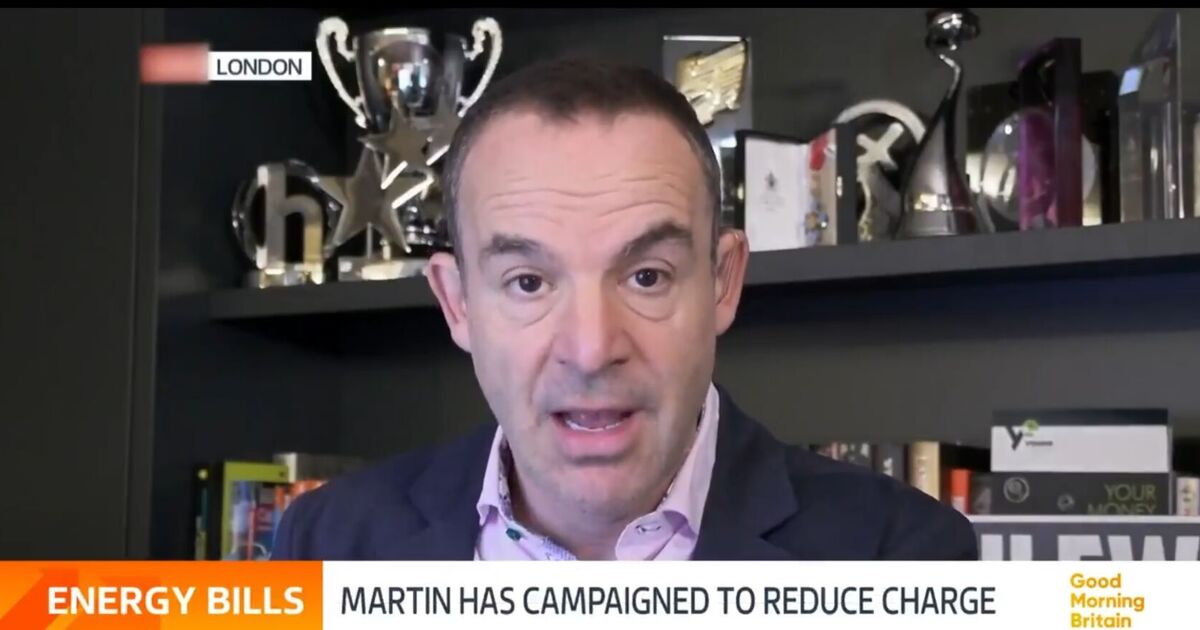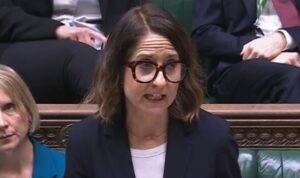
Money Saving Expert Martin Lewis has issued an update on the scrapping of the controversial daily standing charges for energy bills which could save customers up to nearly £340 a year.
The money expert took to Good Morning Britain to advise households across the UK about what is going to happen next year when Ofgem brings an end to mandatory standing charges on bills.
Right now, energy customers, whether they are with British Gas, E.On, EDF, OVO, Octopus or other firms, must pay two parts of their bill: the cost of the units of gas and electricity they used, priced per unit, and the cost of the daily standing charge.
The daily standing charge is something Martin Lewis has for years called a ‘moral hazard’ because it punishes lower energy users, forcing people to pay an average of £338 a year even if they haven’t used any gas or electricity at all.
Following a lot of confusion about what exactly is changing next year for energy customers, Martin Lewis set out what it will mean and how it is likely to work.
Martin said: “This isn’t the perfect solution that I would have liked to happen but I think it’s the best solution that Ofgem can do unilaterally without government intervention.
“£338 a year is the average standing charge on Direct Debit. You pay that whether you use anything or nothing. It’s a disincentive for those who have lower bills to cut their use any more.
“It’s terrible for people who only use their gas central heating in the winter, which is many elderly people. Because it means they’re paying all the way through the summer for gas central heating.
“They’re paying every day even though they don’t use it. It’s awful for people on pre-payment tariffs. IT means when they’ve got no money and they’re not using any energy, the meter’s still ticking.
“So when they want to use energy again, they have to put money in to cover the standing charges. Even though they don’t have the money. So I’ve long campaigned for change.”
Martin then added that the issue with scrapping them entirely is that it will punish some higher energy users who would have to pay even more if the cost of the standing charge was moved to the unit rate.
He continued: “Here’s the problem. And here’s why what I would really like to see which is lower standing charges on the Energy Price Cap that dictates the price 80% of homes in England, Scotland and Wales pay hasn’t happened.
“Many charities who represent people with disabilities and illnesses which have to have high energy usage didn’t want the standing charge to be lowered, understandably. I’m not having a go at them.
“Because if you’ve got an electric wheelchair for your child or a dialysis machine or something that means you have very high energy usage, if you lower the standing charge, where does the cost go to?
“It goes onto the unit rate, the amount that you pay for each unit of gas and electricity. So vulnerable higher users would suffer from this.
“The regulator to be fair to it, and I’ve kicked Ofgem many times in the past when I think it needs it but I’m not doing it this time, the regulator felt and I thought that what was going to happen, that it couldn’t lower the main standing charge because of the impact on those vulnerable people, what we needed is the government to work in concert with the regulator for that to happen.
“And the government hasn’t announced support for those vulnerable high users. I think there’s a chance it may do it next year and this could change again but it hasn’t happened yet.
“So Ofgem said what can we do within our own power?”
Martin then outlined that his team’s suggestion to Ofgem was to have two price caps, one that has a higher standing charge and a lower unit rate and one that has a higher unit rate with no standing charge.
Martin added: “This is the difficult bit – who chooses? Because the price cap was set up as a safety net tariff if you like for people who don’t switch.”
He said that the problem is that if people don’t switch, then they aren’t going to switch to the right price cap of the two either.
He continued: “What I will be lobbying for is by the time this comes in at the end of next year, is that firms must default people if they’re on the Price Cap to the cheapest tariff, or at the very least, firms must default the most vulnerable, those on the priority services register, to the cheapest tariff.
“So low users will automatically be put on the new no-standing charge tariff.”
















